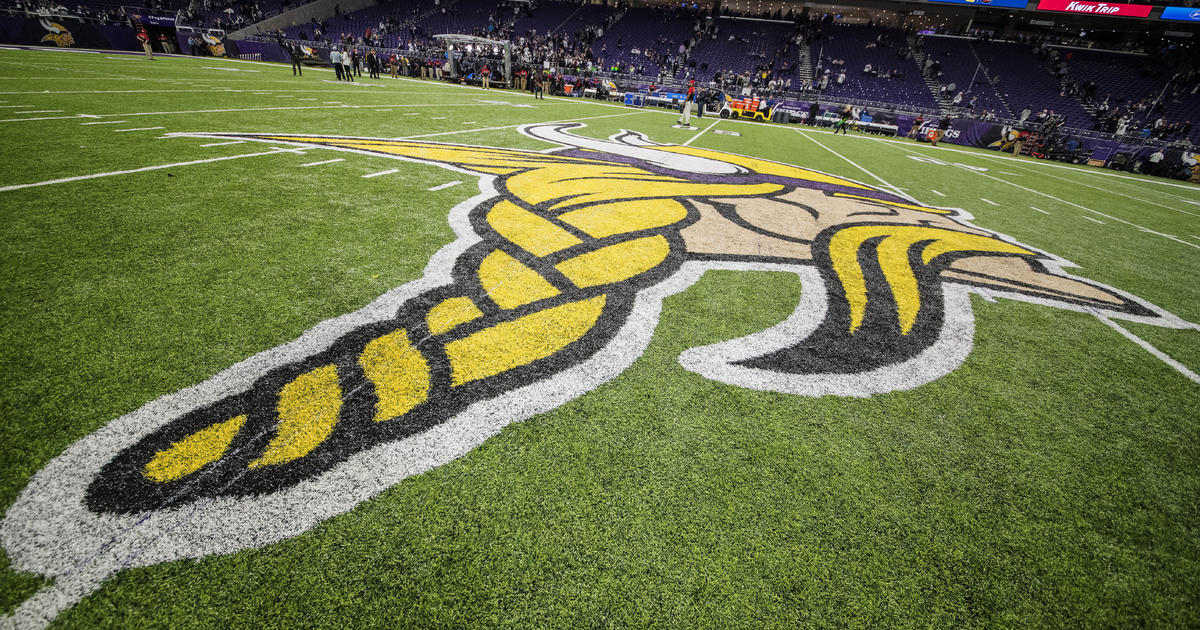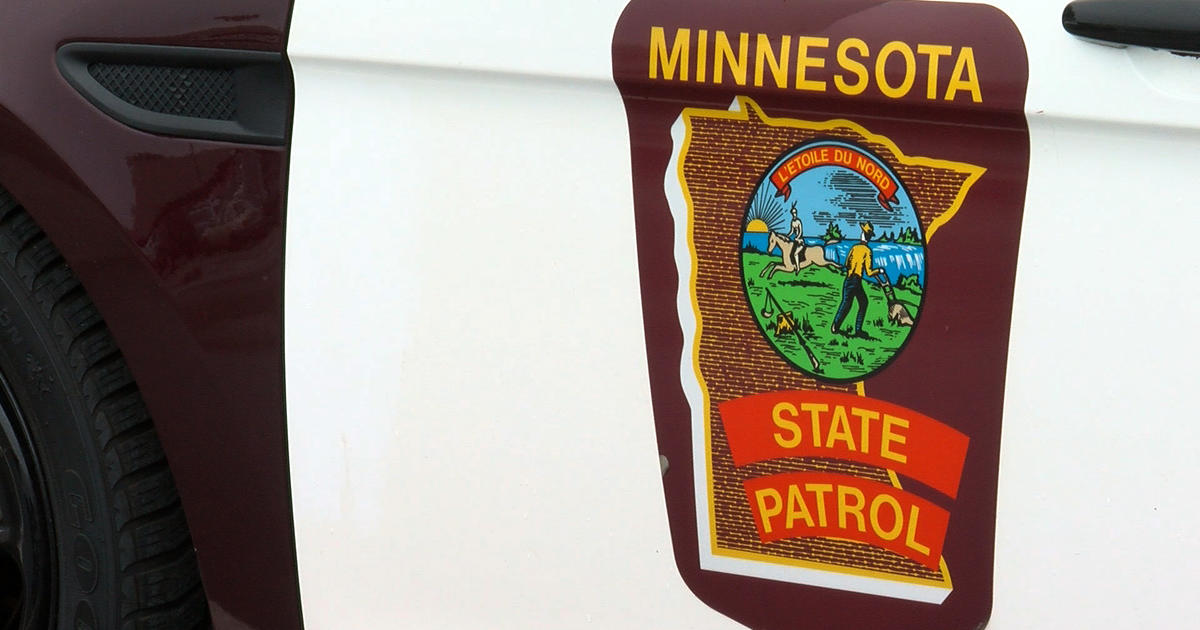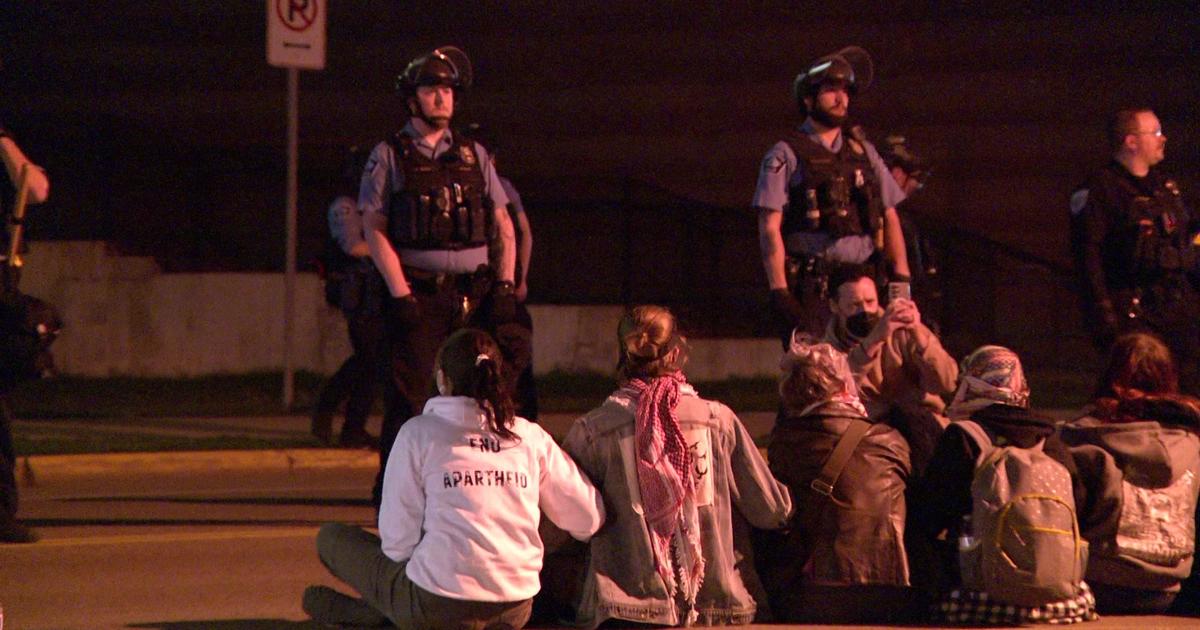WCCO Goes 1-On-1 With Mark Vande Hei, ISS Astronaut With Minnesota Ties
MINNEAPOLIS (WCCO) -- This week marks 60 years since humans' first trip into space. We're also celebrating over 20 years of continuous human presence aboard the International Space Station.
A few days ago, only WCCO was given a special opportunity to speak with two of the 240 astronauts who have lived on the ISS, representing 19 countries. One of them is Mark Vande Hei, who has Minnesota ties. He graduated from Benilde-St Margaret's High School and St. John's University in Collegeville.
He told WCCO he has fond memories of Minnesota and that it prepared him for his life as an astronaut.
Astronaut Shane Kimbrough was also along for the interview.
WCCO's conversation with Mark and Shane also included questions from first-grade through fifth-grade students from Minneapolis's Whittier International School.
Below is a transcript of the interview, which has been edited for clarity:
Mike Augustyniak: Gentlemen, I have to tell you, this is the thrill of a lifetime for us to have this opportunity to speak with both of you. But Mark, I wanted to ask you: how did your general interest in space turn into "I'm going to be an astronaut?"
Mark Vande Hei: I always thought space was this amazing area to explore. And I thought it would be wonderful to do it. I never ever thought that I would become an astronaut. I thought that you kind of had to be a superhero to be an astronaut. And I feel like I was just extremely fortunate I the army put me in a good position so that when somebody asked me if I wanted to work at NASA, I could say yes. And that just led to having this job of being on the space station right now. I'm sometimes very puzzled by the fact that I actually got this far.
MA: I mean, a lot of accomplished people, including me, struggled with something in high school. Even though I have a lot of physics and math background, I really struggled with chemistry. And yet here I am as a meteorologist. I wonder if both you and Shane had a similar experience like that maybe in high school or in college? And if so if you guys could give some advice to other students who maybe feel the same way.
Shane Kimbrough: I think we all have struggled. And that's part of the reason we're here is that we weren't afraid to fail. We try things sometimes that we weren't very good at. But we just worked really hard. We learned how to have really good habits by just working hard at things we weren't great at. Obviously, we like things that we're good at, that's easier for everybody. But some of the things that we weren't so good at throughout our careers, we've gone after just so that we could expand our learning and expand our background. So that's what I would tell folks try to do things that maybe you're not so great at. And just work really hard. And you'll you'll be amazed at the doors that open up for you.
MA: I know that each of you have walked in space, can you explain what that feeling is like the first time that you ever step outside?
MVH: You know, I'm actually going to explain the third time I went outside, I'm going to try to keep this quick because the first two times I went outside, I went feet first. And I was trained to do that in the pool. You know, in a pool where the floor of the pool is only five feet below the hatchway. And as soon as I came out, everything looked like the mock-up of the space station that was in the pool. So my comfort blanket was there. But the third time I had to open the hatch and go out headfirst and there was a time period when I could- in my limited field of view - see nothing of the space station and only the earth 240 miles below me. And that was pretty challenging. I had to definitely concentrate on my breathing to stay calm. Even though I had already spent more than 10 hours outside the space station. And the fourth time I thought oh, this will be no problem. I've done this before. I open the hatch and same exact response came up. My heart started beating really fast, no matter what. You still got to push through some hard things sometimes.
MA: So that's the most exciting part maybe of being in space. But Shane -- we won't tell NASA, I promise -- what's like the most boring or annoying part of living on the International Space Station?
SK: You see a smiling all the time, right? I mean, this is unbelievable that we get to do this - I don't think there's anything boring up here. Our days are always different. We're always working hard on either experiments or maintenance around the space station or working out ourselves physically. And I tell you I haven't been bored yet. I've been up here for a lot of days. I just went over 200 days and Mark's about to hit 200 days here next week. And so I haven't had a boring day yet.
MA: I found a few future astronauts that have some questions for you. These questions come from first through fifth grade students at Whittier International Elementary School in Minneapolis. And we'll start with Abdirahman, who asked: How do you sleep while you're floating around?
MVH: Basically, we have a sleeping bag. Each of us has one and I'd say it's about the size of a phone booth. When I first got to the space station, I felt like I needed to be pressed against the wall to feel like I was in a bed. But eventually I got really comfortable just floating, disconnected from everything except the shoulders in my sleeping bag. And I go in that room and I just free float.
MA: I've heard that some cosmic rays or or Interstellar radiation can sometimes cause flashes of light. If your eyes are closed. Do you guys ever experience that while you're trying to get to sleep?
MVH: Yeah, I've experienced that a few times. It's not every night and of course you got to be alert enough with your eyes closed to actually recognize it. It just kind of looks like a spark or something like that.
MA: Marvin asked - what do you eat in space?
SK: We eat a lot of really interesting food. A lot of times it's the food like the military eats. So they're from MREs. So a lot of it's rehydratable. And a lot of it, the other part of it is just heat, you know, we just heat it up. The food lab has done a great job at the Johnson Space Center preparing our food and our menus. And we have everything you can imagine, from pork chops to chicken to beef to seafood and other things that they have in pouches for us. So it's a lot of soft food, we don't get a lot of crunchy things. So that's I think something that we miss after we've been up here a while are things like salads, and lettuce and chips and things that are crunchy. We also have Russian food because we have cosmonauts on board and they share with us sometimes. And that's really great food. We have a French and a Japanese astronaut on our flight. So we get some French and some Japanese food as well. The key about space food is variety.
MA: Torsten wants to know what kinds of experiments you all are doing on the space station right now?
MVH: Gosh, there are hundreds of experiments we're doing on the space station. We've got experiments that help us better prepare to explore further away from Earth than we have been lately. We've got experiments that help life on Earth. In fact, there's an experiment I spent about five hours working on today. That's called celestial immunity. And we've got blood cells, I believe, from donors, both young adults and elderly. And we're using the fact that being in space causes rapid changes in our immune systems to help study with greater rapidity, how we can under understand our immune systems and, and possibly resulting in medications that are that are able to help us out.
MA: Staying safe is is a big part of what you need to do on a daily basis up there. So what do you do if there's a meteor or space debris in your path?
SK: We don't get that very often. It happens, I don't know, maybe a handful of times a year at the most. And Mission Control will let us know. And then they let NASA know and then NASA lets us know, usually it's well in advance. We have a couple options where they could move the space station out of the way. There's one option if it's late in the game, they would just tell us to go get in a certain part of the space station or if it's really going to be close and it's late they'll have us go get in our vehicles just in case something hit the space station we could undock and then come home safely.
MA: Alright, one quick last question for Mark -- Mark, do you have any Twin Cities memories growing up?
MVH: I have a tremendous number of Twin Cities memories: ice skating, cross country skiing. I certainly would credit Minnesota winters with started me on the path for getting comfortable in extreme environments.



